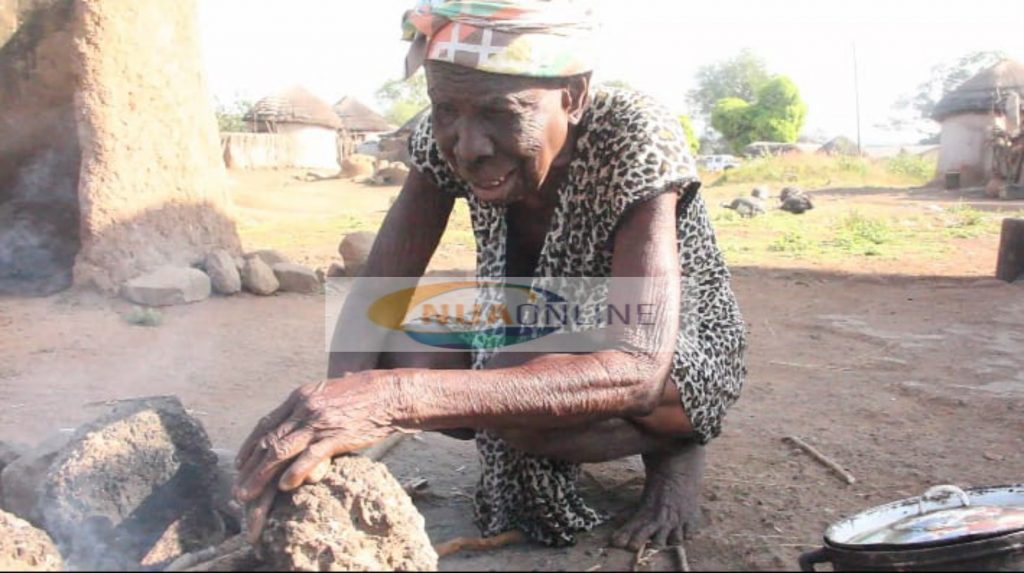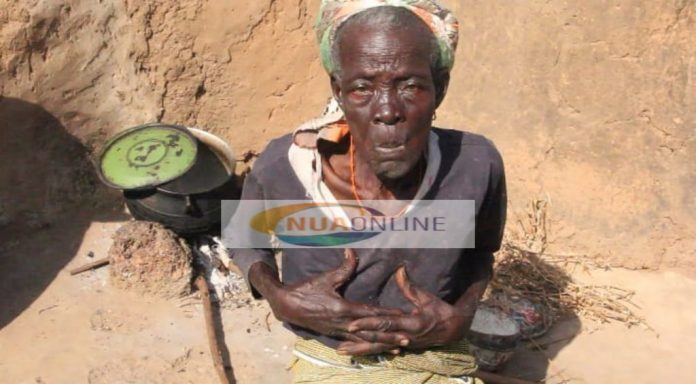Socially marginalized group of people like alleged witches have turned out to be worse victims of the increasingly harsh economic conditions in the country.
Affording a meal a day for them is an privilege.
A visit to the camp by OnuaOnline revealed life has been tough for the young and the aged who live there.
The look on their faces show hunger, depression, anxiety, fear and suffering.
90-year-old blind woman Tanam Layla has lived here for over 20 years.
On hearing about the presence of the news team, she could not hold her tears because for two days, she was yet to eat a meal.
“I have lost my sight due to the tears I shed everyday. Life has been unbearable and now feeding once a day is a problem. For two days I haven’t eaten but today I have flour for koko and after taking it that will be all for the day,” she sadly revealed.

Like Mma Layla, feeding once a day has become a big challenge for the inmates.
14-year-old Kwabena Timothy who lives with the mother here in the camp, shares his plight.
“I live here with my mother and before I go to school I eat once and that’s all. As you can see, this yam I’m roasting is our meal for the day,” he relayed.
Chief of the community blamed the situation on the outbreak of the Covid-19 pandemic and the recent harsh economic conditions.
Leader of the inmates at the Gnani camp, Ama Tilinkyie told OnuaOnline life is tough and unbearable making some inmates wish death upon themselves.
Executive Director at Songtaba, Hajia Lamnatu Adam, whose organisation has been supporting the inmates with food items shared in their plight.
“The current economic situation is having a brunt on everyone including the socially marginalised. We have been working with them and I tell you life in that camp is not easy”
“It is to this effect that we have launched the Faako relief fund to solicit for support both in cash and in kind to be able to support these vulnerable men, women and children,” she noted.
In 2008, Government through the ministry of gender, children and social protection introduced the Livelihood Empowerment Against Poverty (LEAP) program to reduce poverty by increasing and smoothening consumption and promoting access to services and opportunities among the extremely poor.
However, the paltry amount which has been in arrears for the past 8 months is not enough to deal with their financial needs in these challenging times.
Goal 1 of the United Nation’s Sustainable Development Goals which Ghana is a signatory envisage to address poverty and the inequalities existing in society that put certain social groups into disadvantage.
As Parliament take steps to pass the anti-witchcraft bill to compliment governments efforts towards disbanding the various alleged witches camps, it is important to in the interim, consider the welfare of the over 300 alleged witches living in the various camps in the northern enclave.
This will require not only government efforts, but also the support of the entirety of the Ghanaian public and even beyond.
By Christopher Amoako|N/R|Onuaonline.com







